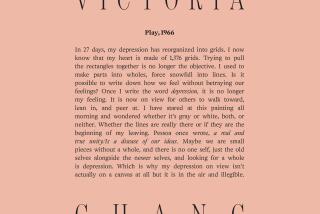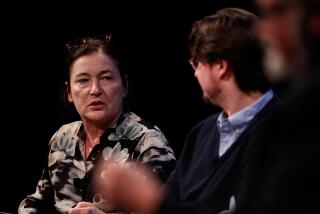The New Yorker Poem by Michael Blumenthal
- Share via
It is best to mention a painter,
but obliquely, not too early,
say, in the fourth line, as in:
She had a face like a Cezanne still life--
disproportionate, overpainted, painstakingly
orderly; to reveal, slowly and subtly,
your erudition, your eclectic intelligence,
your love of the natural world. A hint
of Wallace Stevens (flamboyantly singsong,
delightfully difficult, bilingual)
ought to appear somewhere (She lit
the contrapuntal darkness with her song,
quotidian, blemished, ein kleines Liebeslied
among the sceptered stars). Always
mention water (the madefacting tears
that washed like tide against her cheeks)
and wildflowers (primrose, meadowsweet,
blazing star). It is best if you are already
“someone” (they will pay you a substantial fee
for the mere pleasure of reading your poems),
but this need not deter you: It is enough
simply to know “someone,” to have them send
a cover letter of their own along with your poem
or, better yet, you might just get lucky:
Cezanne may yet appear to you
amid the contrapuntal darkness, reeking
of forget-me-nots and gentians, wafting
his dappled palette against the moon,
etching your reputation into the light
but merely on paper--
quotidian and blemished and loved by everyone.
sg
From “Against Romance” by Michael Blumenthal (Viking/Penguin Inc.). Blumenthal, currently Briggs-Copeland assistant professor of English at Harvard University, also works as a psychotherapist. He won the Water Mark Poets of America First Book Award for 1980 for his first collection of poems, “Sympathetic Magic,” and is also author of “Laps” and “Days We Would Rather Know.” Copyright 1987.
More to Read
Sign up for our Book Club newsletter
Get the latest news, events and more from the Los Angeles Times Book Club, and help us get L.A. reading and talking.
You may occasionally receive promotional content from the Los Angeles Times.






